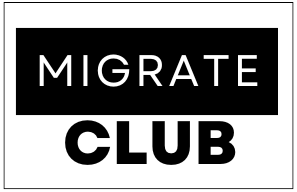Are you entering the job market or considering a career change? Then arming yourself with knowledge about E-Verification will help you understand the employment landscape to move with confidence and clarity.
E-verification is a crucial step for employers and job seekers in the United States but can you decline this process?
This is what this blog post is all about. With the rise of digital systems like E-Verification, understanding your rights and options becomes paramount.
For many years, the US government has worked to put unauthorized immigration under control. One way is through enforcement at the border and the other at worksites which -at this point- concerns you.
In this blog post, we answer the question: Is it possible to decline E-Verification from a future employer in the United States? We’ll break down the process, legal framework, potential risks and benefits, and practical considerations.
We also show alternative solutions to help you make informed decisions. Read on to learn the ins and outs of E-Verification and what it means for job seekers across the country.
Understanding E-verification and Why
E-Verification, short for Electronic Verification, is a system used by employers in the United States to confirm the eligibility of their employees to work legally in the country.
See it as an electronic employment verification system, not so much as a law.
Essentially, it’s a digital process that cross-references information provided by employees on their Form I-9 with government records to verify their identity and employment authorization.
This system was established to ensure that individuals hired by employers are authorized to work in the United States, as required by immigration law.
E-Verification is administered by the Department of Homeland Security (DHS) in partnership with the Social Security Administration (SSA).
Through E-Verification, employers can quickly confirm the validity of an employee’s Social Security number and other identifying information, helping to prevent unauthorized employment and potential legal issues for both employers and employees.
Three categories of employers are also required to use E-Verify: certain federal government employers, certain employers who have been previously convicted of hiring unauthorized immigrants, and (under state law) some or all employers in certain U.S. states.
Since E-Verification is such a big deal, it’s essential to understand how it works and your rights within this system, especially regarding the possibility of declining participation in the process.
Also Read: Which Schengen Countries Are the Easiest to Get a Student Visa?
Can You Decline E-verification?
If you have a legal right to work in the United States, you have nothing to worry about. Being hired without a legal right to work in the US makes the company non-compliant with the laws.
In essence, although not all employers utilize E-Verify, the process itself is not illegal. It’s a system for checks which is important for both you and your employer.
While several states across the United States have implemented regulations mandating the use of E-Verify to ensure the legality of employees’ work status, the specifics can evolve due to legislative and regulatory shifts.
Here are some states leading the charge in E-Verify adoption:
1. Arizona
2. Mississippi
3. Alabama
4. South Carolina
5. North Carolina
6. Georgia
7. Utah
8. Tennessee
9. Indiana
10. Louisiana
However, the E-Verify requirements can differ within each state. For example, some regions may mandate its use for all employers, while others may offer it voluntarily or exclusively for certain industries.
Moreover, federal contractors and subcontractors must integrate E-Verify into their employment verification process under federal law.
E-Verify is a government system.
Some states mandate that all employers who do business in that state use this system. Some states have no such laws and can decide if they still want to use it or not.
An employer can be penalized for hiring a person who is not eligible to work in the U.S. but not for failure to use the E-verification. Yet, E-verification makes it possible to confirm the eligibility of a worker. Now, you see why an employer would likely use the E-verification system.
Just as each state sets its regulations concerning the use of E-verification, some states like California have banned local laws mandating its use.
So penalties vary from state to state regarding the use or non-use of the E-verification system.
Many have gripes about the use of this system. From the error rate to privacy concerns. And if you want to decline your E-verification, you can opt for a different employer.
Now, unless you are in a legal status to work, your options will be limited especially to employers who work you off the books and for less than the going rate of pay without benefits.
Also Read: 10 Most Popular U.S. Visa Interview Questions and Answers
Exploring the Opt-Out Process: Is It Possible?
Many job seekers like you wonder if they have the option to decline participation in E-Verification when applying for a job. Whether it’s possible to opt out of E-Verification will depend on various factors, including the employer’s policies, state laws, and the specific circumstances of the job seeker.
While federal law does not explicitly provide a blanket opt-out option for all employees, there are some scenarios where individuals may have limited ability to decline participation.
One factor to consider is the specific policies of the employer. Some employers may allow you to opt out of E-Verification. Others may require all employees to undergo the process as a condition of employment.
You need to inquire about the employer’s policies regarding E-Verification during the application or interview process.
Additionally, state laws may influence the ability of employees to decline participation in E-Verification. Some states have enacted laws that restrict or regulate the use of e-verification by employers, which may provide additional protections or options for you.
Alternative Options:
You may be scared due to several factors. You may reason that despite legal protections against discrimination based on citizenship or immigration status, E-Verification could be used against those with certain immigration statuses.
This perception of bias may discourage you from participating in the E-Verification process because you fear that it could negatively impact your employment opportunities.
You may also have reservations about privacy concerns. Whatever the case, if you are uncomfortable with participating in E-Verification… if you are facing limitations in opting out, there are alternative options to consider.
Seek Employers without E-Verification: Look for job opportunities with employers who do not use E-Verification or who have more flexible policies regarding employment eligibility verification.
Freelancing or Self-Employment: Explore freelance work or self-employment opportunities where E-Verification may not be a requirement. This can provide more autonomy and control over the verification process.
Negotiate with Your Employer: In some cases, you may be able to negotiate with potential employers regarding their use of E-Verification. Discuss your concerns openly and see if there’s room for compromise or alternative verification methods.
Consider Long-Term Goals: Consider how your decision regarding E-Verification aligns with your long-term career goals and personal values. Making choices that align with your values can lead to greater job satisfaction and fulfillment.
Exploring these alternative options can provide you with more flexibility and control over the employment verification process, allowing you to make decisions that best suit your needs and preferences.
Also Read: How to Choose the Best Country to Do Your Masters’ Degree Abroad as a Nigerian
Conclusion
The question of declining E-Verification from a future employer in the United States is multifaceted. Your considerations will mostly border on legal obligations to personal preferences. Federal law mandates employment eligibility verification. This includes the use of systems like E-Verification for certain employers. However, there may be variations in policies at the state and organizational levels.
We’ve highlighted the importance of understanding your rights, assessing potential risks and benefits, and considering alternative options.
Whatever you do, consider what matters most and align with your values, goals, and circumstances.

























